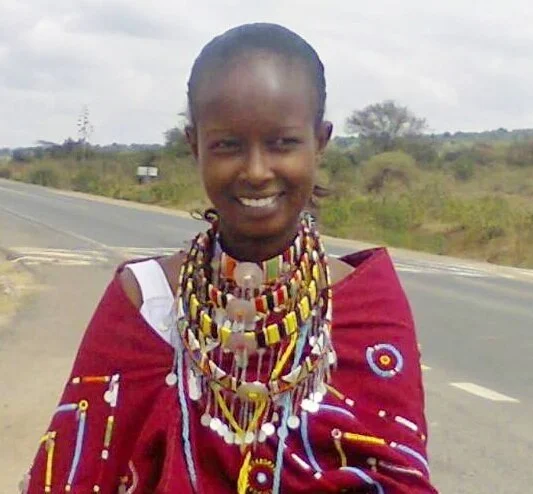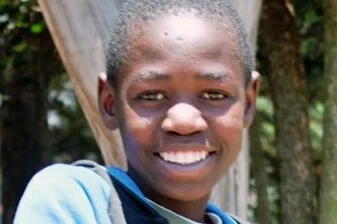Meet the EFAC Scholars
EFAC scholars are girls and boys who live in extreme poverty and hail from urban and rural communities across Kenya. We work with primary school teachers and local NGOs to identify strong candidates for our program -- 8th graders who demonstrate academic talent, leadership potential, and financial need. Without an EFAC scholarship, their dreams of attending high school and college would never be realized.
MEET NAIRA
Raised in a pastoral community, Naira was engaged to be married when she was only 13. She was a brilliant child, but her value was her bride price of a few cows. With an EFAC scholarship, Naira’s life was transformed. She is now a university graduate and human rights lawyer, paving the way for generations of girls to come.
MEET SAM
At age 7, Sam was homeless and alone on the streets of a Nairobi slum. He found shelter at a children’s home until he was awarded an EFAC scholarship. After scoring in the top 1% on the Kenya high school exit exam, he went on to study business and IT at Africa Nazarene University.
MEET NYAMAM
Nyamam lives in the Kakuma Refugee Camp in Turkana County with her disabled mother and four siblings. She loves volleyball and hopes to use her education to help her family. Overcoming extraordinary circumstances, Nyamam rose to the top of her cramped 8th grade classroom to earn an EFAC scholarship!
The Challenge Landscape
EFAC Scholars are selected based on primary school academic performance and financial need, as well as leadership potential.
Academic performance is a critical baseline because EFAC Scholars are placed in top performing national schools that meet and challenge their academic ability. These schools are also committed in their partnership with EFAC to support the students in their journey.
Education beyond 8th grade is fee-based, and many scholars do not continue due to financial need. There is societal pressure to get married or join the workforce in order to alleviate or contribute to family finances, cutting off their long-term potential to create change for themselves and their families and communities.
Leadership potential is the third criterion, measured by an applicant’s participation in their primary school activities and their community participation, as well as their desire to create change in their community and in Kenya. EFAC Scholars are ultimately changemakers and being a strong leader is paramount to their success.
EDUCATED GIRLS DEFY ODDS
Perhaps the most significant contributor to global poverty alleviation and gender equity is girls’ education. In Kenya, girls are more likely than boys to drop out of school after primary school. When you keep a girl in school, she will be more likely to marry later, have fewer and healthier children, earn a living, educate her children, and live longer.
When given opportunity, EFAC girls break through barriers. They are school prefects and math champions. They are engineers and lawyers. They are mentors and changemakers.
EDUCATED BOYS CREATE CHANGE
We cannot underestimate the role of boys’ education in the fight for gender parity worldwide. With exposure to healthy gender norms, they become champions for girls’ empowerment. Education increases a boy’s earning potential, reduces harmful behaviors like crime and substance abuse, and contributes to peace and stability for society at large.
EFAC boys are debate champions and soccer stars. They are doctors and teachers. They are mentors and changemakers.
Students Hail from All Corners of Kenya
EFAC Scholars come from 46 of the 47 counties in Kenya. This interactive map shows how many students from each county are in the EFAC community.






